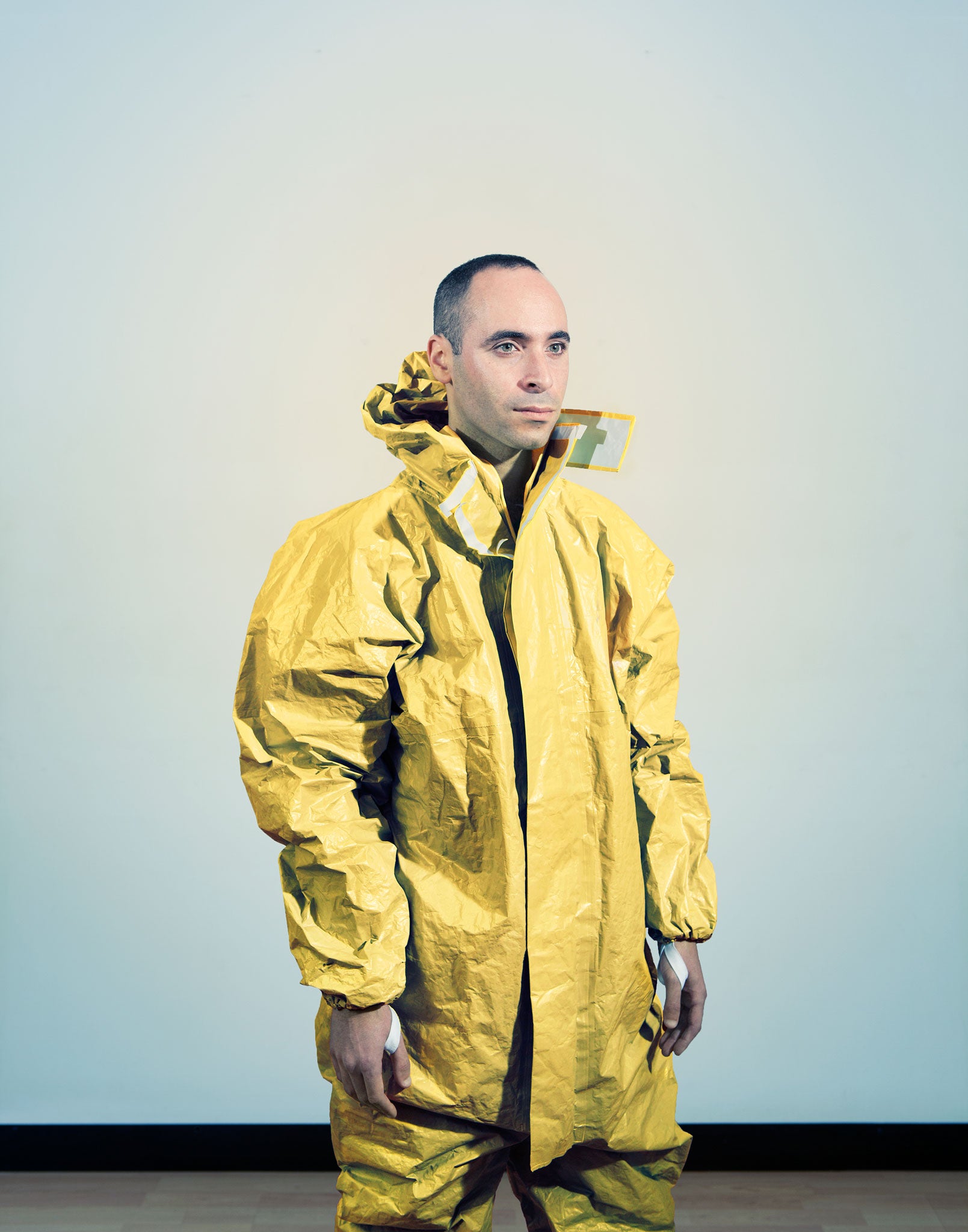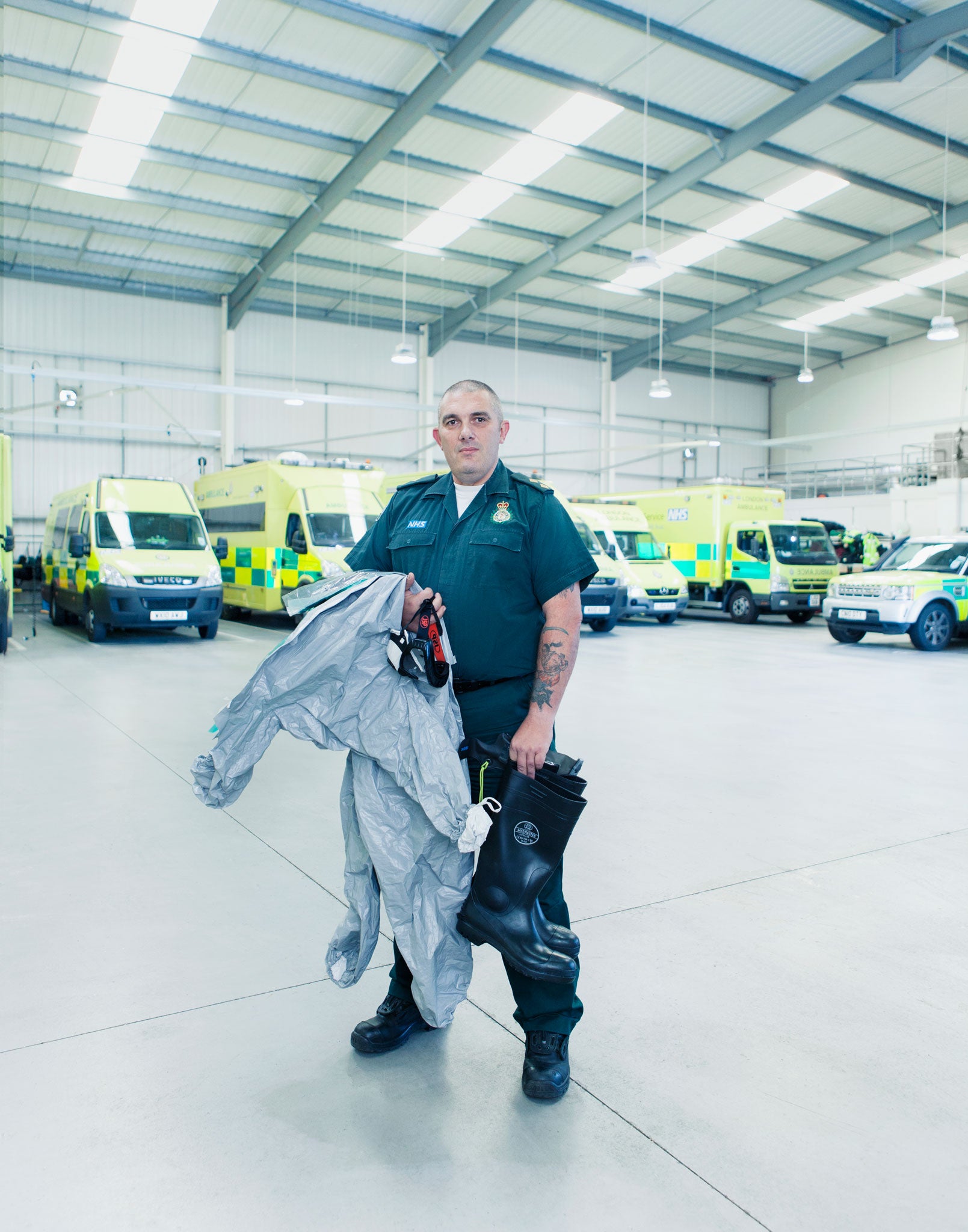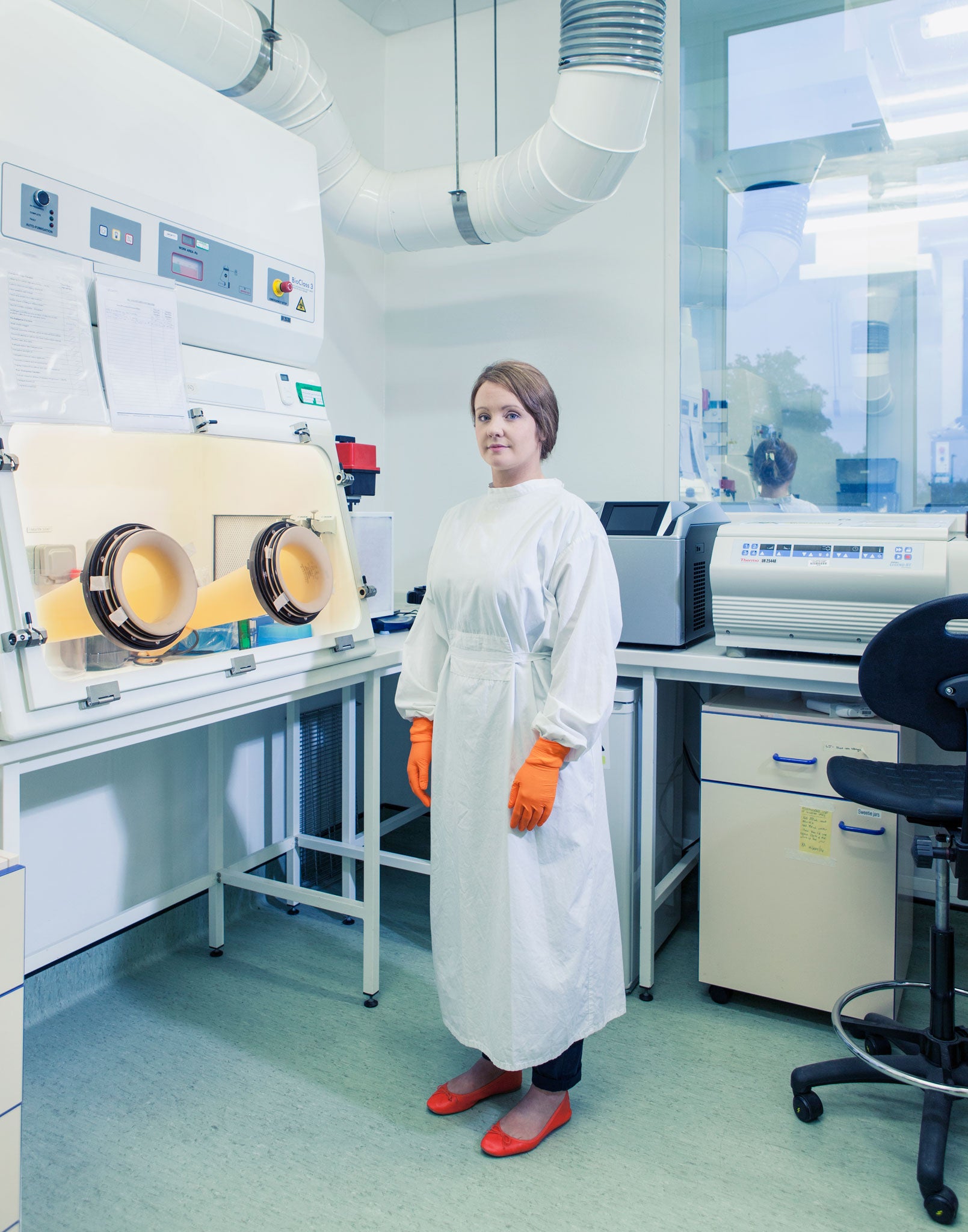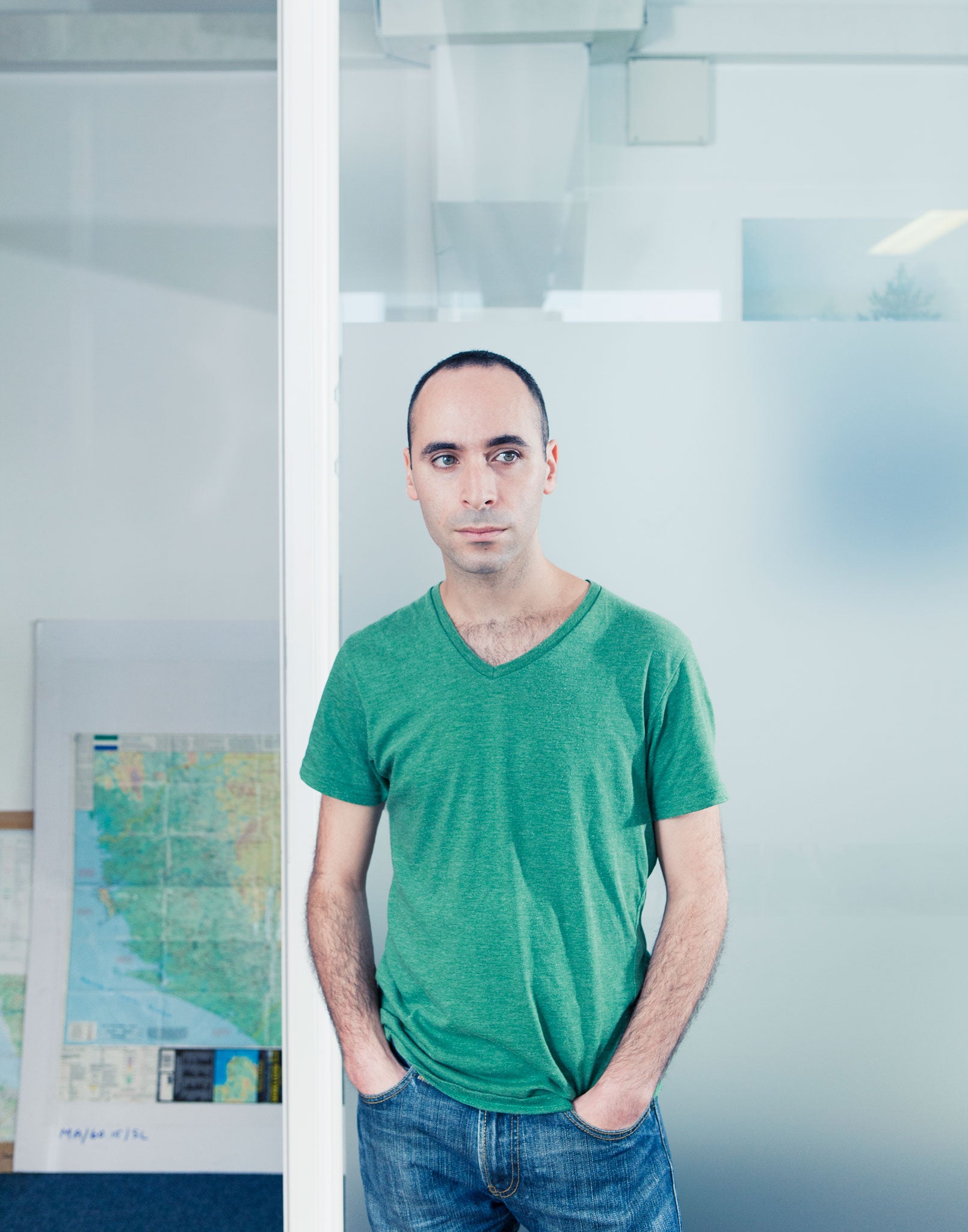Ebola outbreak: Meet the men and women on the frontline against the deadly virus and other hazards
They are first responders, disease experts and emergency doctors. But who are the people who tackle killer viruses for a living? Simon Usborne hears how they (and their families) cope with work

Your support helps us to tell the story
From reproductive rights to climate change to Big Tech, The Independent is on the ground when the story is developing. Whether it's investigating the financials of Elon Musk's pro-Trump PAC or producing our latest documentary, 'The A Word', which shines a light on the American women fighting for reproductive rights, we know how important it is to parse out the facts from the messaging.
At such a critical moment in US history, we need reporters on the ground. Your donation allows us to keep sending journalists to speak to both sides of the story.
The Independent is trusted by Americans across the entire political spectrum. And unlike many other quality news outlets, we choose not to lock Americans out of our reporting and analysis with paywalls. We believe quality journalism should be available to everyone, paid for by those who can afford it.
Your support makes all the difference.Peter Piot was a young scientist in Antwerp in 1976 when an airline pilot brought into his lab a blue Thermos flask sent from a doctor in the former Zaire. It contained test tubes carrying blood from a Belgian nun who had come down with a mystery illness. When they injected the virus from the blood into mice, the animals died – but the team could not identify it.
Before Piot could test further samples, the World Health Organisation ordered the scientists to send them to a high-security lab in the UK. As Piot recalled in Germany last month, his boss refused. "He grabbed a vial containing virus material to examine it, but his hand was shaking and he dropped it on a colleague's foot," he said. "The vial shattered. My only thought was: 'Oh shit!'"
Thankfully, a leather shoe prevented any contamination and Piot and his team soon flew to Zaire, "intoxicated by the chance to track down something totally new". They succeeded and later, while looking at a map on the wall, they decided to name the virus after a nearby river with a "nice name".
Almost 40 years later, Ebola has become synonymous with fear and death – a microscopic agent of a biological world war. On the front line against it, as well as past and future unseeable threats, stand people such as Piot. Most of the time, they work quietly behind sealed doors, emerging into the public consciousness only when disaster strikes.
On these pages, four professionals remove their masks to talk about life in the lab and the field as they work in different ways to protect us. Benjamin Black, k a young obstetrician between missions in Sierra Leone, reveals the ethical dilemmas that arrive at a remote Ebola clinic with sick, pregnant women, and how it feels inside a yellow suit when you think you might be getting ill yourself.
On the home front, Lisa Jameson, a specialist in emerging viruses, describes hunting for rats infected with an elusive but damaging disease on a farm in Yorkshire; a paramedic discusses the work of the elite Hazardous Area Response Team; and a veteran of the fight against outbreaks in animals reflects on a life devoted to taking on an Ebola-like killer of pigs.
Modern procedures and protective equipment have transformed virus research since Piot's colleague dropped that vial. But as the Ebola outbreak has shown, the risks to scientists and medical staff remain real. Black, who became a doctor to do just this kind of work, is professional when recalling the horrors of the Ebola clinic, but he pauses to compose himself when describing the loss of a colleague – a local nurse – to the virus.
The poorest people will always be the most vulnerable, but it is the decision of others to step into a k hot zone that makes their roles fascinating to anyone who would run a mile the other way.
Remember the name Carlo Urbani? In 2003, the Italian doctor was at his desk at the World Health Organisation office in Hanoi, Vietnam, when he was called to the city's French Hospital. A terrifying, unidentified virus had been sweeping through wards there. Urbani identified the risk of what would become known as Sars, and led the race to contain it. He saved uncountable lives, but was dead a month later. His family had pleaded with him to stay away. His reply: "If I can't work in such situations, what am I here for?"
Like Piot and Urbani, these professionals – a tiny sample of those working all over the world – mix the intrigue they find in their work with a desire to help and a reassuring calm and modesty. We see them only when they step into harm's way, or join the sorry toll of victims, but their dedication endures longer than the outbreaks that attract global media attention. As Lisa Jameson says: "It's easy for people to forget what goes on unnoticed all the time. This is what we do."
Linda Dixon, 60, leads research into African swine fever (which is not harmful to humans) at the Pirbright Institute in Surrey (formerly the Institute for Animal Health)
"For more than 25 years I've been trying to develop a vaccine for the African swine fever virus, which causes death in domestic pigs, and has symptoms quite like Ebola. It came from East Africa in the 1920s and was transmitted to Georgia in 2007 via food from shipping that was fed to pigs. It has now spread to neighbouring countries and this year entered the EU via Poland, Lithuania, Latvia and Estonia. It's difficult to eliminate because it also infects wild boar, which populate large parts of Europe.
"The main threat in the UK would come from illegally imported infected meat being fed to pigs, or legal imports that are not recognised to be infected.
"It would be easier to control than foot-and-mouth disease but the economic costs would be high because we would have to impose restrictions on movement around infected premises, and ban all pork and pig exports.
"The big risk globally is that it spreads to China, which has half the world's population of pigs. They are absolutely terrified of the global impact an outbreak would have on pork supply and prices.
"We are trying to understand how the virus interacts with the host. One approach is to develop a strain that induces a protective response. But it's a very complex virus and there are few labs in the world that are secure enough for this kind of work.
"People might think it must be boring to work on something for so long, but things are moving forward so much, and there's always something you don't quite understand. It's like a big puzzle.
"We also do diagnosis on any suspected samples in the UK and there's a lot of pressure to get it right because we know that the impact of a positive result will be immediate. These diseases have a direct link to people's livelihoods as well as science. They suck you in."

Simon Woodmore (above), 45, is a paramedic and operations officer for London Ambulance Service's Hazardous Area Response Team (Hart)
"I have a helmet for all occasions – five in all – as well as an array of outfits, including breathing apparatus and gas-tight suits, respirators and chemical protective suits. My job is to put paramedics where historically they could not have worked. We were born out of the Tokyo subway sarin attack in 1995, and have been running as Hart since 2006. There are 94 of us in London dealing with chemical, biological and radiological incidents, as well as building collapses and floods.
"I qualified as a paramedic almost 20 years ago, and used to get frustrated having to wait for a patient to be brought to me. Now we're in a position to go in and take that care forward, with the first responders; it makes a huge difference, partly because it means you can allay people's fears, to say, 'You're fine.'
"We've always dealt with contagious diseases and work with the Royal Free Hospital London high-level isolation unit to transfer confirmed cases, which fortunately is rare. A lot of it is communicating with the patient in a caring and compassionate way, which can be difficult when you're in full gear. There is an increased awareness of Ebola, but it's about reinforcing the processes we already have in place. Any personal risk is mitigated by our training and equipment.
"The human side of what we do is most important. We've had a case of deliberate chemical exposure where people have killed themselves, including one involving a young family. We can deal with risk and the chemicals themselves, but dealing with deceased children is harder.
"I've had some difficult conversations at home, especially if something has been on the news. I'm also on the medical emergency register for the Ebola response in West Africa. That really was a difficult conversation, but I've been blessed with my training and can make a difference. My wife will always be worried but she understands what I do and why I do it."

Lisa Jameson (above), 29, is a National Institute for Health Research doctoral research fellow for Public Health England, based at the Porton Down facility in Wiltshire. She specialises in emerging viruses
"My mum was a nurse and I remember as a child watching these diseases emerge – HIV, CJD, BSE. I remember the bonfires of cattle during foot-and-mouth and the fear and misunderstanding that went along with them. I found it fascinating that something you can't see with the naked eye could cause such panic.
"I now work at Porton Down where I'm finishing my PhD on hantaviruses – rodent-borne viruses that can cause serious renal problems in humans. It's not like Ebola – by the time someone is sick, the virus has cleared from their system; I needed to find a rat.
"In 2011, a farmer in Yorkshire presented with symptoms. We turned up at his farm in overalls, boots and filter masks, and trapped rats. Back at Porton, we found the virus and were able to isolate it. For the first time we could see the virus and confirm its type. To isolate a virus so soon was exciting. I'll probably never get another one in my career.
"In June, I travelled to Guinea to work at the European Mobile Laboratory. I was part of the fourth team there to test samples for Ebola at an MSF centre and, we thought, the last. There hadn't been new cases for 10 days and we were briefed on how to pack up the lab. Then, on day two, it really accelerated.
In Porton, I'm in a lab and get a sample with a number on it. Now I was in the field watching patients come into the isolation centre next to us, often with their families. Sometimes they'd be walking and talkative, then die that night. It was tough but we were so busy, and being there made it feel like we were making a difference. When I got home after a month, I felt a sense of guilt that I was able to walk away. I'll almost certainly be going back.
"I would be really surprised if we had anything here even close to what we've seen in Africa, and that's thanks to places like Porton Down. When you work with something every day you don't always realise the importance of what you do until something like this happens."

Benjamin Black (above), 33, is a specialist registrar in obstetrics and gynaecology for Médecins Sans Frontières (MSF)
"In June I travelled to Sierra Leone, where one in 21 women of reproductive age dies in childbirth. This was my first mission, and the reason I got into medicine. I had my eyes wide open to Ebola; though it was still in its early days and concentrated across the border in Guinea, within days I had my first suspected Ebola cases in maternity. It was happening.
"Those cases ended up [testing] negative but days later I attended a woman who was unconscious and having seizures. It could have been pre-eclampsia, but she was also bleeding from the nose and mouth and came from an area with a high incidence of Ebola.
"It's a difficult decision to isolate a mother, as it limits what you can do as you wait for samples to be tested at the lab, miles away. But we did isolate her, and put on full protective gear: a plastic onesie, scrubs, plastic apron, two pairs of gloves, two face masks, a hood with a small slit for the eyes and goggles.
"The woman died before the test came back positive. At the moment there is no recorded case of a baby surviving a pregnant mother who has Ebola.
"You need a healthy amount of fear to be safe, as well as protocol and organisational back-up. The greatest fear then is how long you can keep getting it right. There is also a huge psychological element. I checked my temperature daily, but in a hot, humid country there's a constant feverish feeling anyway. We had scares and one of our national nurses was infected, probably in the community. He sadly died and it had a huge impact on the team.
"After 10 weeks I knew I had to leave, but I also knew I'd be back. People expect you to celebrate when you get out, but I left with a feeling of guilt. I got home before healthcare workers were getting infected and people around me weren't worried. Nor should they be – there is no risk without symptoms and we check for them for 21 days. Even so, I suspect it will be different when I come home next time, and that I won't have trouble getting a seat on the Tube if I announce where I've been."
Join our commenting forum
Join thought-provoking conversations, follow other Independent readers and see their replies
Comments